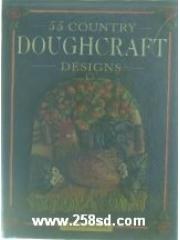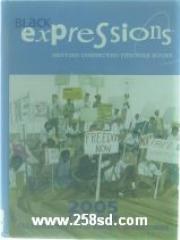

具体描述
The effective demise of communism in 1990 and the proper names. Despite a number of international con-<br >fragmentationofthe Soviet Unionin 1991 triggered a series ferences on the subject, the problem is becoming more,<br >of changes in global politics of unparalleled proportions, rather than less acute, in part because of an increasing<br >With the abrupt end of the Cold War, the potential for tendency toward linguistic "nationalization". Thus cities<br >armed conflict shifted, for the most part, from the in- once known as Leopoldville, Lourenco-Marques, and Sal-<br >terstate to theintrastate level, with long simmering aspira- isbury are now styled Kinshasa, Maputo, and Harare, re-<br >tions for ethnic self-determination erupting in dozens, if spectively, while the former Republic of Upper Volta is<br >not hundreds, of new locations. Fleetingly, it appeared that now Burkina Faso and Burma is Myanmar; in addition,<br >the United Nations might be able to contain the ethnic throughout the Third World (particularly in Africa)Chris-<br >brushfires; instead, it slipped almost imperceptibly from tian given names are commonly- and understandably-<br >the role of peacekeeper into the far more challenging task being abandoned as lingering relics of colonialism. Another<br >of peacemaker, with results that to date have been mixed, problem turns on the use of foreshortened first names, many<br >at best. In the vanguard of the UN-backed global effort, politicians (particularly in Australasia and the Caribbean)<br >the United States has seemed bewildered as its humani- choosing to be known, for example, as "Bob", rather than<br >tarian gestures are increasingly reviled as acts of unwelcome "Robert", or "Tom", rather than "Thomas", while the Greek<br >intrusion, version of "John" may be rendered (in ascending order of<br > Accompanying theapparent retreat from authoritarian- familiarity) as "loannis , "Yiannis", "Yannis", or "Yanni".<br >ism has been a global proliferation of political parties. With And, of course, US President Truman insisted that his legal<br >communism following fascism into the dustbin of history, name was "Harry S Truman" rather than "Harry S. Tru-<br >autocrats of varying stripes have become phiralists or have man", since the "S" stood as an abbreviation of nothing.<br >had pluralism thrust upon them. In some cases, however, In rendering proper names based on the Roman alpha-<br >the demoeratic explosion has glven former dictators room bet, we have included relevant diacritics, where known.<br >to maneuver; in others, previously antidemocratic leaders The indexing of Spanish names has been keyed to the pa-<br >have been returned to power by democratic means. The ternal component; in the case of Portuguese names, how-<br >highpoints of hope bracketed by the collapse of the Berlin ever, the increasingly prevalent practice (to which we large-<br >Wall in 1989 and the signing of the Israeli-PLO peace ac- ly adhere) is to key to the terminal component, even i f<br >cord in 1993 have also witnessed a near-Malthusian popula- maternal. In some cases, the "family" name in the western<br >tion explosion tragically curtailed by widespread famine sense may be rarely, if ever, used, while the given name may<br > and untreatable diseases such as AIDS and drug-resistant be foreshortened.<br >TB, theuncertainprospectsofdebt-riddenless-advantaged In the transliteration of names derived from non-<br > economies, and a potentially irreversible degradation Of Western languages, we have attempted to strike a reason-<br > the earth s environment, able balance between the customary usage of the country<br > In attempting to assess, in highly compressed form, the under treatment and that of the international press. We<br > past and present politics of the global community, wecon- have made a particular effort to achieve some degree of<br > tinue a publishing tradition extending from 1928, when the standardization in the transliteration of Arabic names, al-<br > Council on Foreign Relations issuedA Political Handbook though complete uniformity appears to be approachable<br > of the World, edited by Malcolm W. DavisandWalterH. only in the rendering of Gulf Arabic. In accordance with<br > Mallory. Mr. Mallory became the sole editor in 1929 and currently prevailing practice, mainland Chinese names are<br > continued in that capacity until 1968. The present struc- given in pinyin, although Wade-Giles and other variants<br > ture of the work is based largely on the format introduced are utilized elsewhere. On occasion, consistency must yield<br > by Richard P. Stebbins and Alba Amoia in the 1970 edi- to an individual s preference (if known), as, in the case of<br > tion. Since 1975 the Handbook has been assembled at the Greek, choosing between Constantine, Constantinos, or<br > State University of New York at Binghamton, which, as Konstantinos. In some cases (e.g. Burmese and Vietnam-<br > of 1985, also assumed the role of publisher, ese) no distinction is made between "first" and "last" names;<br > The editors have attempted to make the textual infor- in others (e.g., Indonesian) the name may contain only one<br > mation current as of July 1, 1993, with major developments element, while in some the preferred form of address may<br > through September 15 also being noted (see page iv for be by the given, rather than the family component.<br > additional details on calendar coverage). In 1989, for the fifth year in a row, no newly indepen-<br > Amajorproblem facing thecompilersofaglobalcom- dent territory entered the community of nations, and it<br > pendium turns on the rendering of both geographic and appeared that the post-World War II march toward in<br >
作者简介
目录信息
读后感
评分
评分
评分
评分
用户评价
我对本书的评价视角更多地集中于其作为一种“比较政治学”工具的效用。在1993年,全球意识形态对抗的“真空期”促使各国政府在治理模式上进行了大量的试验与模仿。我试图通过这本书,系统性地比较不同文化背景下的国家,在面对市场经济转型和民主化呼声时,所采取的**正式**宪法框架的差异。例如,一个前社会主义国家与一个传统的君主立宪制国家,在保障私有财产和新闻自由的条款上,措辞上有何微妙但关键的不同?这本书的结构迫使你进行跨区域的横向对比。它将立陶宛、沙特阿拉伯和秘鲁并置在同一参考框架下,这极大地拓宽了我的视野,让我意识到形式上的相似性背后隐藏着权力运作机制的巨大鸿沟。我不是在寻找谁更“好”的答案,而是在探究“为什么他们会选择这样的结构来合法化自己的统治”。这种自上而下的宏观梳理,为后续研究国家制度的“路径依赖”提供了绝佳的初始数据点,它就像一张详尽的全球器官图谱,标注了每一个政治器官在特定时刻的结构参数。
评分就这本书的“手感”和“使用体验”而言,它是一件纯粹的工具书,没有任何多余的装饰或导读。纸张的质地和印刷的清晰度,即便放在今天来看,也体现了出版社对严肃参考资料的尊重。我尤其喜欢它对于各国首脑的任职时间精确到“月”的标注,这在处理那些政局不稳或领导人频繁更替的国家时,显得尤为重要。它避免了使用模糊的时间概念,而是用冰冷的数据锚定了历史瞬间。对于我这种需要定期引用各国官方信息的读者来说,这种对细节的坚持是极其重要的,它意味着我可以放心地将书中的数据视为一个可靠的、无偏见的原始记录源,而不是某个评论家主观提炼的结论。这本书最大的价值在于其**拒绝解释**,它只是呈现事实的集合,而正是这种纯粹的堆砌,迫使读者必须亲自参与到对这些事实进行解释和关联的艰难过程中去。它不是一本读起来令人愉快的书,但它绝对是一本不可或缺的、构建我们对1993年世界理解的“骨架”。
评分这本厚重的著作,光是书名就透露出它沉甸甸的历史分量——《世界政治手册:1993年版:截至1993年7月1日的各国政府与政府间组织》。我之所以会翻开它,其实是为了研究冷战结束后初期,世界政治格局是如何迅速地进行自我重塑的。我主要关注的焦点是前苏联解体后,新独立国家(尤其是中亚和东欧地区)的政体过渡与外交政策的初步形成。这本书的结构无疑是严谨的,它如同一个冷静的档案管理员,将全球两百多个政治实体——无论大小、无论其影响力几何——都置于同一张详尽的清单之下进行剖析。我特别欣赏它在描述那些新兴或陷入剧烈动荡国家的章节时,所呈现出的那种近乎手术刀般精确的数据罗列,比如最高领导人的更迭时间点、议会组成的关键比例,甚至是官方的意识形态表述。这为我理解那段时期区域政治的“硬核”现实提供了坚实的基础,避免了过多依赖当时媒体的叙事偏见。然而,由于时效性的限制,对于那些在1993年下半年才出现重大政策转向的国家,书中只能提供一个截至年中时的快照,这在进行趋势分析时,多少需要读者自行去“补白”后续的发展轨迹。总体而言,它是一份不可替代的、对特定历史时刻的政治地理学描摹,其价值在于其无可比拟的“时间戳”属性。
评分说实话,我最初购买这本书是抱着一种“寻宝”的心态,想看看那些在今天媒体上已销声匿迹的小国或“失败国家”在1993年到底是什么样的政治面貌。我主要翻阅了非洲和南太平洋岛国的部分。令人惊讶的是,书中对这些地区许多鲜为人知的政权也进行了细致的梳理,这在当时的网络信息匮乏的年代,简直是一项浩大的工程。我特别感兴趣于它如何描述那些由军事政变上台的领导人及其继任者的合法性基础——往往是用最简洁的篇幅,指出他们是通过“全民公投”还是“临时宪章”上台的。这种极端的客观性,使得我能够绕过西方媒体对这些国家常有的“非民主化”标签,而去审视他们自身所构建的、看似严密的官方叙事框架。这种“旁观者”式的记录,对于理解后殖民时代国家构建的脆弱性和复杂性,具有不可替代的价值。唯一让人感到些许遗憾的是,对于许多处于内战边缘的国家,其“政府”的描述往往显得有些讽刺,因为那所谓的“政府”可能只控制着首都的几条街道,但书中仍旧会郑重其事地列出其内阁名单,这种反差本身就构成了对现实政治荒谬性的一种隐性批判。
评分作为一名长期关注国际安全合作机制的学者,我对本书中关于政府间组织(IGOs)的部分给予了高度的关注。在1993年这个时间点,许多旧有的安全架构正在瓦解,而新的多边合作模式尚未完全确立。我希望从中找到联合国、欧共体(当时尚未完全过渡到欧盟)、以及区域性组织(如后来的独联体雏形)的章程、成员国构成以及决策机制在当年夏天的“现场快照”。这本书提供的细节,例如各组织秘书处的预算大致构成和常设理事会的投票权分配,是任何一篇关于全球治理演变的论文都无法绕开的基石信息。我发现,通过对比不同组织在同年内通过的决议文本,可以清晰地看出全球对人权、贸易自由化以及前南斯拉夫冲突等议题的关注度是如何在机构间进行博弈和分化的。当然,作为一本“手册”,它必然牺牲了对这些复杂的内部运作进行深入的理论探讨,更多的是一种百科全书式的收录。但对于需要即时、准确调取某一组织在特定历史瞬间的官方地位和职能界定的研究者来说,这种克制反而成了它最大的优点,它把解释权交还给了使用者,只提供了最纯粹、未经消化的原始材料。
评分 评分 评分 评分 评分相关图书
本站所有内容均为互联网搜索引擎提供的公开搜索信息,本站不存储任何数据与内容,任何内容与数据均与本站无关,如有需要请联系相关搜索引擎包括但不限于百度,google,bing,sogou 等
© 2026 onlinetoolsland.com All Rights Reserved. 本本书屋 版权所有




















